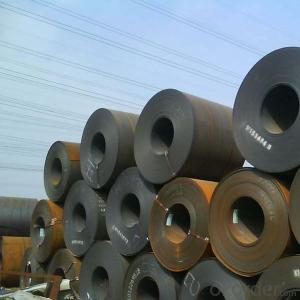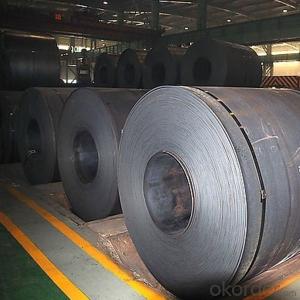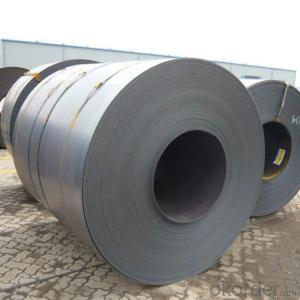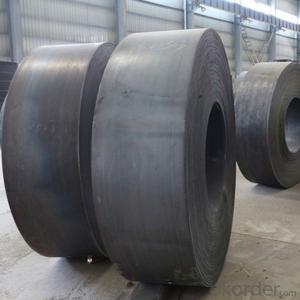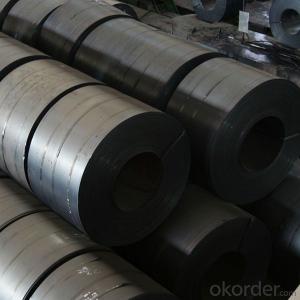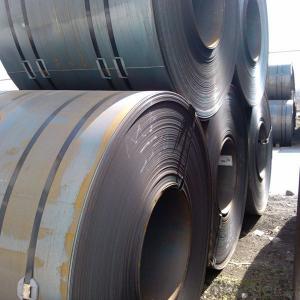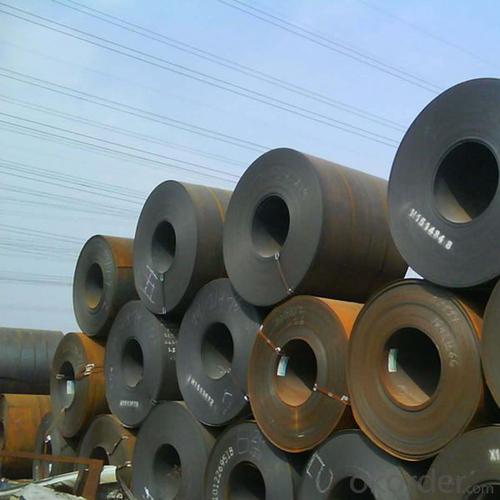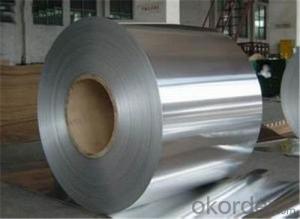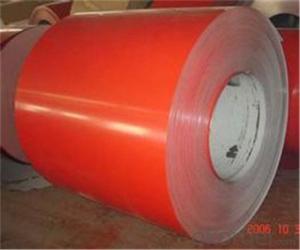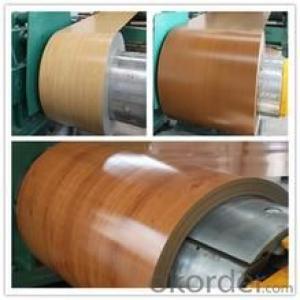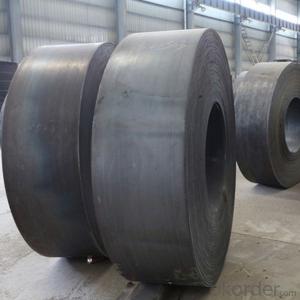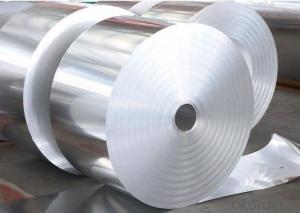Steel Coils in Rolled Made in China for Wholesale
- Loading Port:
- Tianjin
- Payment Terms:
- TT OR LC
- Min Order Qty:
- 27 m.t.
- Supply Capability:
- 10000000 m.t./month
OKorder Service Pledge
OKorder Financial Service
You Might Also Like
Specification
Description for carbon steel plate
Production | hot rolled steel coils ss400 |
Port | Tianjin, China |
Category | Minerals & metallurgy |
Thickness | 1.8-16mm |
Width | 1000-1500mm |
Coil Weight | about 23 tons |
Material Grade | SS400\Q235\Q345B |
Technique | Hot Rolled |
Standard | GB ,JIS |
Test | With Hydraulic Testing, Eddy Current , Infrared Test |
Surface | 1) Bared 2) Black Painted (varnish coating) 3) Galvanized 4) Oiled |
Package | in bundles, strapped by strips. Or as customer’s requirement |
Sample | Common products, we can provide freely, for special production,we can depends on negotiation. |
MOQ | 10 tons |
Payment | 100% L/C at sight, 30% T/T in advance, and the balance against the copy of B/L or negotiation |
Delivery time | Within 10-25 days, according to quantity, asap save customer’s time |
Certificate | ISO |
PACKING:
1.Big thickness:by bulk vessel
2.Small thickness:packed by steel strips and shipped by container
3.According to the requirements of customers'
TRADE TERMS :FOB, CFR, CIF
PICTURES:
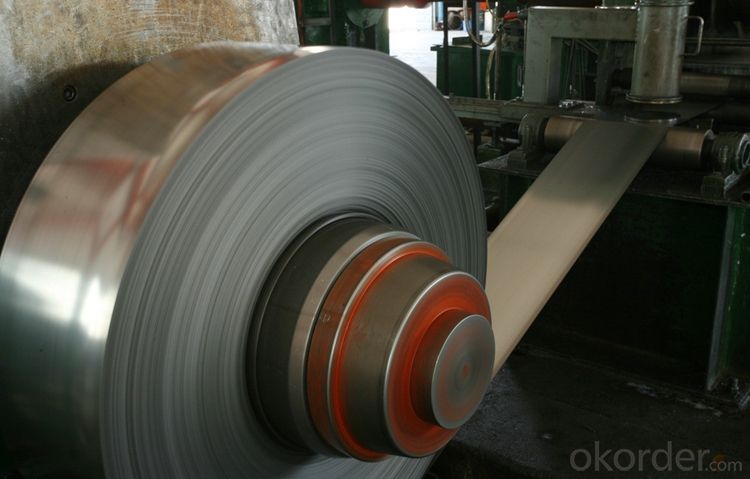
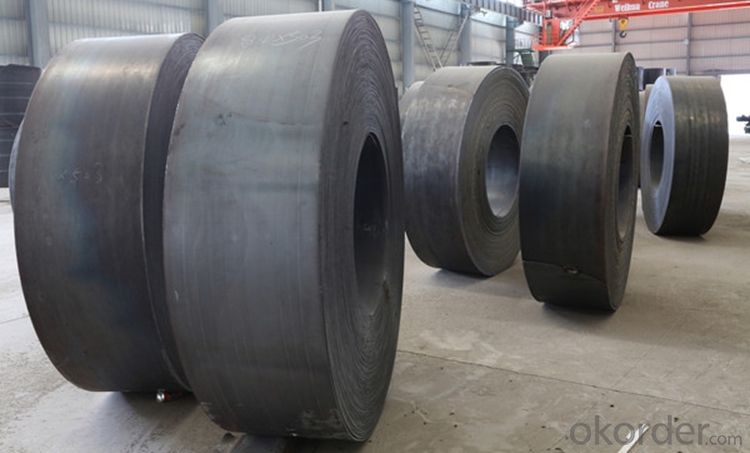
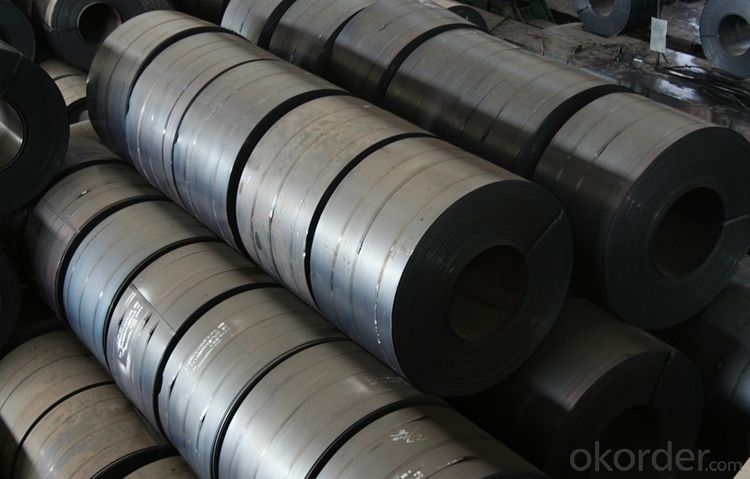
FAQ:
1.Q:You are Factory or Trading Company?
A:We are factory,our main products include Steel plate,Steel Bar,Steel coils.
2.Q:What’s the MOQ?
A:Generally,the trail order will be accepted.The MOQ can be confirmed according to the different products.For example,the MOQ of rebar will be 25-50MT,the galvanized steel pipe will be 10MT,the stainless steel pipe will 1-5MT.
3.Q:Do you have OEM service?
A: Yes.Variety of products size,quality and quantity can be customized according to your need.
4.Q:Could you support free sample?
A:Yes.We can supply FREE samples.But the delivery charges will be covered by our customers.
- Q: How do steel coils contribute to the strength and durability of structures?
- Steel coils, being made of high-strength steel, contribute to the strength and durability of structures in multiple ways. Firstly, the tightly wound coils provide structural stability and support, enabling the construction of large-scale buildings and infrastructure. Additionally, the inherent strength of steel allows it to withstand heavy loads, impacts, and extreme weather conditions, ensuring long-lasting durability. Furthermore, steel coils offer excellent resistance against corrosion and fire, further enhancing the structural integrity and lifespan of the structures they are used in.
- Q: How are steel coils inspected for formability using forming tests?
- Steel coils are inspected for formability using forming tests by subjecting them to various forming processes such as bending, stretching, or deep drawing. These tests help evaluate the ability of the steel to undergo deformation without cracking or tearing. The formed samples are then inspected for any defects or imperfections, such as surface irregularities, fractures, or wrinkling. This allows manufacturers to assess the quality and suitability of the steel coils for specific applications, ensuring they meet the required standards of formability.
- Q: I am thinking about getting a cold steel tilite or a kershaw leek or possibly a buck sirus. If you have had any experience with these knives please give it to me. thanks
- Cold Steel while not made in the U.S. are still good knifes. I EDC a 2 Mini Tanto as my third knife for over 16 years. Recently the scales fell off and were lost, they are no longer available. My #2 EDC for the last 11 years has been a Kershaw Chive and it is still on my belt behind my Blackberry. I move between 2 EDC primary knives a 1996 Benchmade/Emerson CQC-7 and a Emerson Model I folder. I have gotten great service from all of them, and I rate them as follows: 1) Emerson 2) Cold Steel or Benchmade (Blue or Black Box product) 3) Benchmade (Red Box - made outside of US) or Kershaw All of the 2nd and 3rd tetieruys have non US products, not neccessarily bad. I have had good results all of them. Value for the dollar = Benchmade Blue Box. Decent value for entry price Kershaw is good as a first knife. Hope this helps.
- Q: where to buy Transformer steel?Used in transformers and electric motors.
- Here okorder
- Q: How are steel coils used in the manufacturing of automotive parts?
- Steel coils are used in the manufacturing of automotive parts by being processed and transformed into various components such as body panels, frames, suspension parts, and engine components. The coils are typically flattened, cut, and shaped according to the desired specifications before being incorporated into the assembly line to create the necessary parts for vehicles.
- Q: How do steel coil manufacturers handle product recalls?
- Steel coil manufacturers handle product recalls by following a systematic process. Firstly, they identify the specific batches or lots of steel coils that need to be recalled based on quality or safety concerns. Then, they promptly notify their distributors, customers, and regulatory authorities about the recall, providing all relevant information. The manufacturers work closely with these stakeholders to ensure that the affected coils are returned or replaced. Additionally, they investigate and address the root cause of the issue to prevent similar recalls in the future, implementing necessary quality control measures and process improvements.
- Q: How are steel coils inspected for chemical composition using spectroscopy?
- Steel coils are inspected for chemical composition using spectroscopy by using a technique called laser-induced breakdown spectroscopy (LIBS). In LIBS, a high-energy laser beam is directed onto the surface of the steel coil, causing a small portion of the material to vaporize and form a plasma. The plasma emits characteristic light that is unique to the elements present in the steel. This emitted light is then analyzed by a spectrometer, which separates the light into its individual wavelengths and measures their intensities. By comparing the intensities of the emitted light to known reference spectra, the chemical composition of the steel coil can be determined accurately and efficiently.
- Q: How do steel coils compare to stainless steel coils?
- Steel coils and stainless steel coils are both widely used in various industries for their strength and durability. However, there are some key differences between the two that should be considered when choosing the appropriate material for a specific application. One of the main distinctions between steel coils and stainless steel coils is the composition of the materials. Steel coils are made primarily of iron and carbon, with other elements added to enhance specific properties. On the other hand, stainless steel coils are made of iron, carbon, and a significant amount of chromium, which gives them their unique corrosion-resistant properties. Due to the presence of chromium, stainless steel coils offer superior resistance to corrosion, tarnishing, and rust compared to regular steel coils. This makes stainless steel coils particularly suitable for applications in environments with high humidity, moisture, or exposure to corrosive substances. In contrast, steel coils are more prone to rust and may require additional protective coatings or treatments to prevent corrosion. Another significant difference is the appearance of the two materials. Stainless steel coils have a shiny and reflective surface, giving them an aesthetically pleasing look. They are commonly used in applications where appearance is important, such as kitchen appliances, architectural structures, or decorative purposes. Steel coils, on the other hand, have a matte or dull finish and are often used in industrial applications where appearance is not a primary concern. In terms of strength, both steel and stainless steel coils offer excellent mechanical properties. However, stainless steel coils generally exhibit higher tensile strength and greater resistance to high temperatures. This makes them suitable for applications that require strength, such as construction, automotive, or aerospace industries. Lastly, cost is a factor that should be considered when comparing steel coils to stainless steel coils. Steel coils are generally more cost-effective than stainless steel coils due to the lower cost of raw materials and simpler manufacturing processes. However, when the added value of corrosion resistance and longevity is taken into account, stainless steel coils may prove to be a more economical choice in the long run, as they require less maintenance and replacement. In conclusion, steel coils and stainless steel coils have different properties and characteristics that make them suitable for specific applications. Stainless steel coils offer superior corrosion resistance, a shiny appearance, and higher tensile strength, while steel coils are more cost-effective. The choice between the two ultimately depends on the specific requirements of the application, such as the environment, aesthetics, strength, and budget.
- Q: What are the common coil edge finishes?
- The common coil edge finishes include slit edge, mill edge, and deburred edge.
- Q: What are the challenges in welding steel coils?
- There are several challenges in welding steel coils that need to be addressed in order to ensure successful and high-quality welds. One of the main challenges is achieving proper joint preparation. Steel coils often have different surface conditions, such as rust, scale, or oil, which need to be cleaned or removed before welding. This requires extensive cleaning and preparation to ensure a clean and sound welding surface. Another challenge is the control of heat input. Steel coils are typically thin, and excessive heat can cause distortion, warping, or even burn-through. Welding operators need to carefully control the heat input to prevent these issues and maintain the integrity of the coils. Moreover, the presence of residual stresses is a significant challenge. Steel coils are often subjected to various stresses during manufacturing, transportation, and handling, which can lead to distortion or cracking during welding. Adequate preheating and post-weld heat treatment may be necessary to relieve these stresses and prevent any potential defects. Ensuring proper weld penetration is also crucial. Steel coils may have varying thicknesses, and achieving consistent and adequate weld penetration throughout the joint can be challenging. Welding operators need to choose the appropriate welding parameters and techniques to ensure complete fusion and a strong bond. Lastly, the size and weight of steel coils can pose logistical challenges during welding. Handling large and heavy coils requires specialized equipment and proper positioning to ensure safe and efficient welding. Additionally, the length of the coils may require multiple passes or continuous welding, which demands skilled operators and precise coordination. Overall, welding steel coils requires careful attention to joint preparation, heat control, stress relief, weld penetration, and logistical considerations. Overcoming these challenges ensures the production of high-quality and durable welded steel coils.
Send your message to us
Steel Coils in Rolled Made in China for Wholesale
- Loading Port:
- Tianjin
- Payment Terms:
- TT OR LC
- Min Order Qty:
- 27 m.t.
- Supply Capability:
- 10000000 m.t./month
OKorder Service Pledge
OKorder Financial Service
Similar products
Hot products
Hot Searches
Related keywords
